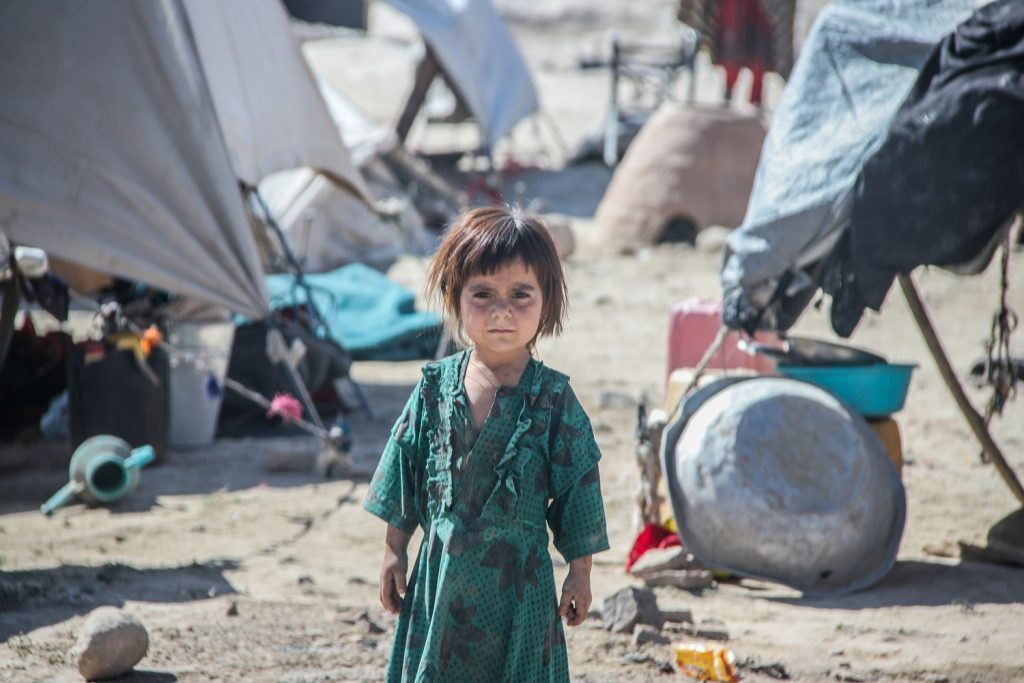AFGHANISTAN CRISIS | PRISCELLA MABOR
THE Minister for Immigration and Multicultural Affairs, Alex Hawke MP announced the formation of an Advisory Panel, in the wake of Australia’s resettlement of 3,000 Afghan nationals, which was announced the week earlier.
The Community Migrant Resource Centre’s CEO Melissa Monteiro is the Chairperson of the Settlement Council of Australia who are represented on the panel.
It is now three weeks ago that the world woke up to the news that the Taliban had secured control of Kabul, the capital of Afghanistan.
Once a country steeped in fidelity to family and faith, yet sitting on a trillion dollars of mineral resources that has brought only misery in the form of poor governance, corruption and foreign invasion.
Wave after wave have escaped the long arm of cyclical conflict, be it with Russia, Pakistan, the US and its allies, the Taliban or ISIS, to Australia. Millions have joined the diaspora of Afghans marooned outside their home country.
CMRC has been supporting Afghan communities resettle in Sydney for over 20 years including Pashtun, Tajik, Uzbek, Hazara, Almak.
There are about 15,000 Afghans living in Sydney today. When the news broke about the ascendancy of the Taliban, shock set in but also an equal determination to respond and most importantly reach out the hand of inclusion by letting the community know they were not alone.
CMRC’s Sharing Circles started within a week. It brings together three Afghan Hazara women – Farzana, Layla, Sani – of different ages, with different lived experiences and different periods of time living in Australia.
We catch up over Zoom this week, after they all finish their regular walk around the block for mental relief. They now facilitate six Circle therapeutic sessions with Afghan women weekly, traumatized by the immediate danger of family overseas whilst hibernating in a cruel cocoon of lockdown restrictions.
There is a common theme that starts with the women who flock to the circles.
“How can I propose or sponsor my husband, my sister-in-law, my fiancée, my sons to come to Australia?”
There are 45-minute phone calls, where women can hardly breathe before they launch into a harrowing story of their husband who has been missing for eight days.
Layla says: “There is a mother, who had to speak to her sons’ school as they boys cannot concentrate on study now. They sit in front of the computer but just stare at the screen. “
Inevitably a crisis illuminates some shocking truths that lie behind our migration processes in Australia. For many women, when they arrived here, they often came with only half their family.
Apparently, it is not unusual when a family arrives, that any child aged 18 and over, is not usually granted a visa. So, in the Sharing Circles, there appears to be many women who have two children here and two children overseas.
Desperate to be rescued
When I ask what is the age that a young person in Afghanistan is considered an adult, and I am met with furious fits of laughter.
Farzana explains: “Sometimes a person is never considered an adult. For example, a boy can marry and be a father but he may still live in the family home. He may call home every day, as all decisions may still be made by his parents.”
So, it did dawn on me, that there could be thousands of Afghan youth, hiding out in Kabul, Kandahar and Jahari, desperate for their parents to rescue them.
However, communications are compromised, with phone networks down and the Hawala system of money transfer through the shops at a standstill as all the banks are closed and the currency rate is plummeting.
In Sani’s first Circle, she was meeting the women on the morning after the ISIS – KR suicide bombing at the airport.
“They were overwhelmed. Their English is low, and some have husbands who are very busy working. So, they are desperate for help to rescue their children trapped overseas.”
Farzana heard from a woman whose son-in-law was killed by the Taliban just over year ago. “Her daughter and sister are there and now in Malestan in the Ghazni district, the Taliban are already taking young girls who are 12-years-old for the Jihadists. “
Australia did process about 400x visas for ADF interpreters this year. The wife of one interpreter who arrived here in May, is now faced with survivors’ guilt. They just escaped in time, but all of their family and friends remain trapped.
The three women on the Zoom are starting to morph into superwomen in front of my eyes. How do they stay sane and centred and strong, in the midst of such horror?
There are some diversionary tactics already being shared – from watching Pakistan dramas to Turkish horror series to baking Persian cupcakes.
When I ask about the next few weeks and months, I hear about the Colour Coding system.
The Taliban have a colour coding system to identify which houses contain those who betrayed them: those worked with the US and its allies and also which houses contain girls who have turned 12 years of age.
No wonder that 50,000 applications were lodged in the last two weeks to attempt to rescue loved ones from such a clear and present imminent danger, where a colour coded house could literally mean life and death.
Priscella Mabor is Inclusion Strategy & Innovations Manager at Community Migrant Resource Centre based at Parramatta. Visit: www.cmrc.com.au





